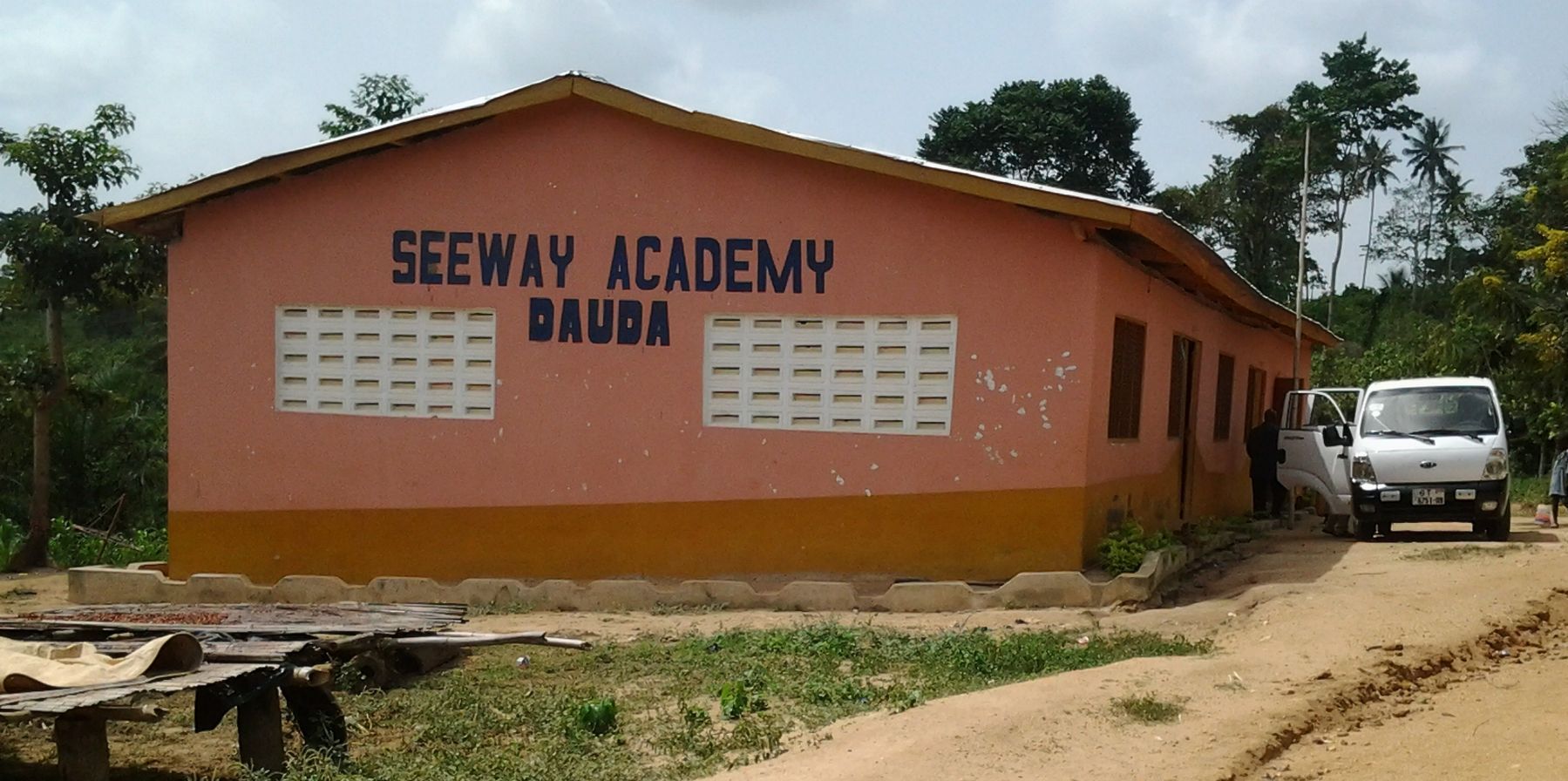
Seeway Education
Providing a quality of life and education to the rural areas of Ghana
Ghana experiences by Julian Warren
George Rockson organised a driver called Richard to pick us up at 7.30 am from Pastor Tetteh's house to take our family on an outing to Cape Coast, about 2 hours from Accra. Richard arrived with a heavy duty, vehicle large enough to seat Charity, Abigail (Charity's friend from the orphanage) our family of four and himself. We were introduced to Richard who was a friend from George's church and together we prayed for safe travelling, which we came to appreciate as a necessary ritual in order to survive the drivers and roads in Ghana. The way of driving seems quite lawless in comparison to the West but when everyone is driving in the same fashion you quickly get used to it. Driving out of Accra Richard was stopped at a road block and asked to present the police with his documents and to show that he had a fire extinguisher in the vehicle. This made us anxious at first, especially as we were unaccustomed to seeing police wielding machine guns but all the police seemed very respectful and we were soon on our way again. Although we were not stopped and questioned again we had to pass through numerous police road-blocks that day.
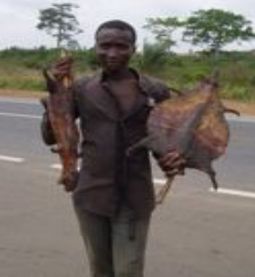
When the car was stationary at traffic lights there were a multitude of vendors who would approach the car attempting to sell us food, drink, newspapers etc. We soon learnt not to maintain eye contact if we did not intend to purchase anything and the vendor would move on, however it was sometimes difficult not to stare at them because of the cultural spectacle of carrying loads upon their heads that defied the laws of western physics while still managing to conduct business and dodge traffic. I was particularly fascinated with some sort of heated pie warmer that when balanced created a mobile bakery. I reasoned it was probably hot enough in Ghana to retain the heat for several hours remote from any power source. We also visited a number of roadside stalls that day to buy Mangoes, watermelon and other foods however we avoided the dried 'Grasscutters' a local delicacy (also known as cane rat) that resembled an oversized rat that had been caught and splayed on a rack to dry. Despite the trepidation that caused us to baulk at sampling the Grasscutter the local dishes were a highlight of our week at Ghana.
The food was quite spicy but not enough to cause us any major stomach complaints, although we suspect that there may have been a few concessions made to accommodate our Western palate. We regret not having taken down the recipe for the red, spicy sauce that appeared on the table with most meals. Conspicuous by their absence at meal times were the women, the girls form the orphanage, Pastor Tetteh's wife and daughter's all seemed to take great pride in preparing wonderful feasts for us but needed considerable degrees of persuasion to entice them to join us at the dining table. We figured from their resistance that this must have be a cultural habit that differed from our Western etiquette, having the unwanted side effect of making us feel slightly rude every meal.
On route to Cape Coast we stopped for brunch at a costal village near Ghana's academy of police. The beach was beautiful, white sand and palm trees but like the other beaches we saw in Ghana it was not at all set up to cater for tourists instead it was the site of a number of village huts and obviously fishing was their main means of subsistence. As we sat on the beach we observed the locals fishing with huge nets all along the beach. We counted 42 people working the net, a massive group effort hauling in their daily catch.
An hour after our beach stop we arrived at Cape Coast Castle; one of the biggest fortresses that had been used primarily, by the English, as part of the slave trade, although we learnt that gold and other precious commodities were exploited and traded in the region. This one fortress, of which even now there are many, was estimated to have housed over 600,000 slaves in its history up to the 1870s, and this number were a mere fraction of the slave trade's overall total. One estimate was between 10 and 40 million souls.
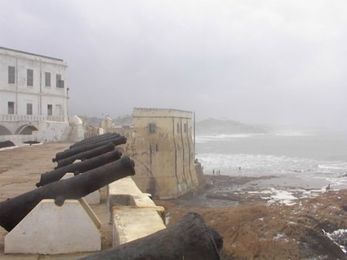
Although it must be noted that saying that the slaves were 'housed' would be erroneous because the conditions in the dungeons where they were chained in the dark for up to three months were far from humane. Ironically, the chapel was built directly over the roof of the dungeons. At one point the tour guide explained that excavations in the dark dungeon had never fully dug back down to the brick floor and that we were walking on a layer of composted faeces. Even though we expected to be confronted by this experience it was fascinating to see the range of grief reactions from within our tour group. It was actually Richard -our driver- who seemed to provoke many of these reaction as he accused to tour guide over his bias towards the sympathetic English version of the history of the slave trade. The crowd seemed to share his opinion and the young tour guide managed to escape a barrage of negativity through a combination of diplomacy and retreat.
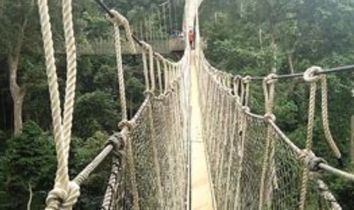
From there we headed on to a national park for a forest canopy rope bridge walk. This was an exhilarating and enjoyable experience that helped bring some lightness back into our day after viewing the degrading treatment of past Ghanaians. The walk was set in Kakum National Park and was an exercise in trust as we wobbled our way across the tree top bridges. Completion of this task brought about a great feeling of achievement and relief.
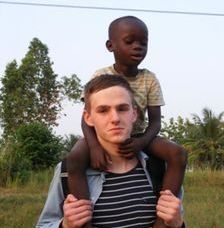
Our trip back to Pastor Tetteh's house took about two and a half hours, it had been a long day but we had much to think and talk about as the sun set, the air cooled and we ate mangoes and other local delicacies on the way!
An amazing trip!
